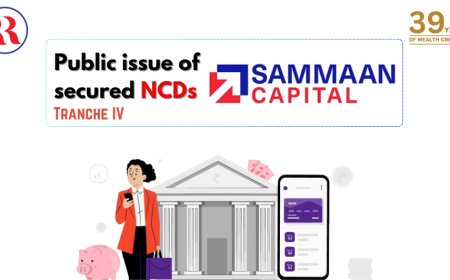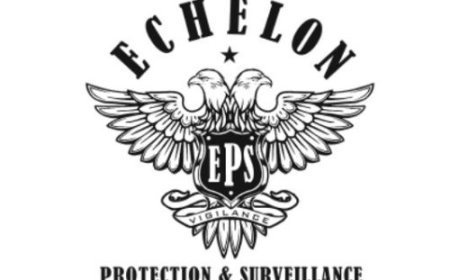How to Apply for 80g Registration
How to Apply for 80G Registration Section 80G of the Income Tax Act, 1961, is a critical provision that enables donors to claim tax deductions on contributions made to eligible charitable organizations. For nonprofit entities in India, obtaining 80G registration is not merely a compliance requirement—it is a strategic imperative that enhances credibility, attracts funding, and sustains long-term o
How to Apply for 80G Registration
Section 80G of the Income Tax Act, 1961, is a critical provision that enables donors to claim tax deductions on contributions made to eligible charitable organizations. For nonprofit entities in India, obtaining 80G registration is not merely a compliance requirement—it is a strategic imperative that enhances credibility, attracts funding, and sustains long-term operations. Without this certification, even the most well-intentioned NGOs, trusts, and societies risk losing the trust of individual and corporate donors who rely on tax incentives when making philanthropic contributions.
80G registration signals to the public and tax authorities that an organization operates transparently, adheres to statutory norms, and channels funds exclusively toward charitable purposes. It transforms an organization from a mere entity into a recognized instrument of social good. For donors, it means their contributions are not just acts of generosity but also tax-efficient financial decisions. For the recipient organization, it opens doors to institutional grants, corporate social responsibility (CSR) partnerships, and wider public support.
This guide provides a comprehensive, step-by-step roadmap to successfully apply for 80G registration. Whether you are a newly formed trust, an established NGO, or a society seeking to formalize its charitable status, this tutorial will equip you with the knowledge, tools, and best practices needed to navigate the process efficiently. We will walk you through documentation, application procedures, common pitfalls, and real-world examples—all designed to maximize your chances of approval and ensure lasting compliance.
Step-by-Step Guide
Step 1: Understand Eligibility Criteria
Before initiating the application process, it is essential to confirm that your organization qualifies for 80G registration. Not all nonprofit entities are eligible. The Income Tax Department mandates specific structural and operational conditions:
- The organization must be registered under the Indian Trusts Act, 1882; the Societies Registration Act, 1860; or Section 25 of the Companies Act, 2013 (now Section 8).
- Its objectives must be exclusively charitable, such as relief of poverty, education, medical relief, environmental preservation, or advancement of religion.
- It must not engage in any profit-making activities, except those incidental to its charitable objectives.
- It must not benefit any particular religious community, caste, or group exclusively.
- Its governing documents (Trust Deed, Memorandum of Association, or Bye-laws) must contain clauses prohibiting the use of income or assets for non-charitable purposes.
- The organization must have been operational for at least three years in most cases, although exceptions may apply for newly established entities with strong documentation.
Organizations that fail to meet these criteria will be rejected outright. Review your governing documents carefully. If any clause contradicts these requirements—such as allowing surplus funds to be distributed to members or permitting political activities—amend them before proceeding.
Step 2: Prepare Required Documentation
The quality and completeness of your documentation determine the speed and success of your application. Incomplete or inconsistent paperwork is the leading cause of delays. Below is a detailed checklist:
- Registration Certificate: A certified copy of your organization’s registration under the Trusts Act, Societies Act, or Section 8 of the Companies Act.
- Trust Deed or Memorandum of Association (MoA): Must be stamped and registered. Highlight clauses that confirm charitable purposes, non-distribution of profits, and asset utilization restrictions.
- Bye-laws or Rules and Regulations: Must align with the Trust Deed or MoA and clearly outline governance structure, decision-making processes, and fund allocation.
- PAN Card: The organization’s Permanent Account Number must be valid and active.
- Bank Account Details: A canceled cheque or bank statement showing the organization’s name, account number, and IFSC code. The account must be in the organization’s name, not an individual’s.
- Audit Reports: Audited financial statements for the last three financial years. These must be prepared by a qualified Chartered Accountant and include a detailed statement of receipts and payments, balance sheet, and utilization certificate.
- Annual Reports: Reports summarizing activities, beneficiaries reached, and funds utilized for the past three years. Include photographs, project summaries, and testimonials where possible.
- Proof of Address: Utility bills (electricity, water, or landline telephone) issued in the organization’s name for the last three months.
- Form 10G: The official application form for 80G registration, available on the Income Tax Department’s e-filing portal. Must be filled accurately and signed by the authorized signatory.
- Declaration under Section 80G(5)(vi): A signed statement affirming that the organization does not promote sectarian interests and operates for public benefit.
Ensure all documents are scanned in high resolution (minimum 300 DPI) and saved in PDF format. Organize them in a logical folder structure labeled “80G_Application_[Organization_Name].”
Step 3: Register on the Income Tax e-Filing Portal
If your organization does not already have an account on the Income Tax e-Filing portal (https://www.incometax.gov.in), you must create one. Follow these steps:
- Visit the portal and click on “Register as a New User.”
- Select “Organization” as the user type.
- Enter the organization’s PAN, name, and registered address.
- Provide the email ID and mobile number of the authorized signatory (usually the trustee or secretary).
- Complete the OTP verification process.
- Set a secure password and log in.
Once logged in, navigate to the “e-File” tab, then select “Income Tax Forms.” Choose “Form 10G” from the list. The system will auto-populate your organization’s details based on PAN. Review and update any discrepancies.
Step 4: Fill Out Form 10G Accurately
Form 10G is the cornerstone of your application. Errors or omissions here can lead to rejection or prolonged scrutiny. Key sections to focus on:
- Part A: Details of the Organization: Enter full legal name, address, registration number, date of registration, and nature of registration (Trust/Society/Section 8 Company).
- Part B: Nature of Activities: Clearly describe your charitable objectives using precise language. Avoid vague terms like “social welfare.” Instead, specify: “provision of free medical camps for underprivileged children in rural Maharashtra” or “scholarships for girls from SC/ST communities in Odisha.”
- Part C: Financial Details: Summarize income and expenditure for the last three years. Ensure these figures match your audited statements exactly. Include sources of income (donations, grants, interest) and expenditures (program costs, administrative expenses, fundraising).
- Part D: Declaration: The authorized signatory must declare that the organization complies with all conditions under Section 80G. This declaration must be signed and dated.
Attach all supporting documents as per the portal’s file upload instructions. Do not exceed the 5MB limit per file. If documents are larger, compress them using PDF optimization tools without compromising text clarity.
Step 5: Submit and Track Application
After reviewing all entries and attachments, click “Submit.” You will receive an acknowledgment number immediately. Save this number—it is your primary reference for all future correspondence.
The application is then forwarded to the jurisdictional Assessing Officer (AO) of the Income Tax Department. Processing time typically ranges from 3 to 6 months, though some cases may take longer due to backlogs or requests for additional information.
To track progress:
- Log in to the e-Filing portal.
- Go to “My Account” > “View Form 10G Status.”
- Check for any notices under “Compliance” or “Pending Actions.”
If the AO requires clarifications, you will receive an email or a notice on the portal. Respond promptly with clear, concise, and documented answers. Delayed responses can reset the processing timeline.
Step 6: Receive Approval and Maintain Compliance
If approved, you will receive a certificate of registration under Section 80G via email and postal mail. The certificate includes:
- Organization name and PAN
- Registration number
- Validity period (usually permanent unless revoked)
- Conditions of exemption (e.g., percentage of donations eligible for deduction)
Upon receipt:
- Display the certificate prominently on your website and in printed materials.
- Update your donation receipts to include the 80G registration number and a statement: “Donations to this organization are eligible for 50% or 100% tax deduction under Section 80G of the Income Tax Act, 1961.”
- Inform your donors and partners of the certification.
Post-registration compliance is non-negotiable. You must:
- File annual income tax returns (Form 10B or 10BB) on time.
- Submit audited financial statements annually.
- Ensure donations are used solely for charitable purposes.
- Update the Income Tax Department of any changes in address, governing body, or objectives.
Failure to comply may result in cancellation of 80G status, retroactive tax liability, and reputational damage.
Best Practices
Maintain Meticulous Records
Documentation is your strongest defense during audits and renewals. Establish a digital archive system where every receipt, bank statement, project report, and communication is tagged with date, purpose, and reference number. Use cloud storage with version control to ensure accessibility and prevent data loss.
Align Governing Documents with Section 80G Requirements
Many applications fail because the Trust Deed or MoA contains clauses that conflict with 80G norms. For example, clauses allowing surplus funds to be distributed to members or permitting political lobbying are automatic disqualifiers. Before applying, have a legal expert review your founding documents. If necessary, amend them through a formal resolution and register the changes with the appropriate authority.
Ensure Financial Transparency
Donors and authorities alike prioritize transparency. Use accounting software designed for nonprofits to track donations, expenses, and allocations. Avoid cash transactions; all receipts and disbursements should pass through the organization’s bank account. Maintain a clear audit trail from donation to utilization.
Prepare for On-Site Verification
Some Assessing Officers conduct unannounced visits to verify the organization’s physical existence and operations. Ensure your office is clean, organized, and staffed during business hours. Keep records of activities, beneficiary lists, and project reports readily available. If you operate remotely, have a registered office with a valid address and point of contact.
Use Professional Auditors
Do not rely on in-house bookkeepers for audit preparation. Engage a Chartered Accountant experienced in nonprofit compliance. They understand the nuances of Form 10B/10BB, donor restrictions, and the treatment of corpus funds. Their credibility adds weight to your application.
Build Donor Trust Through Communication
Post-registration, communicate your impact. Publish annual impact reports with infographics, beneficiary stories, and financial summaries. Transparency builds long-term donor loyalty and increases the likelihood of recurring contributions.
Stay Updated on Regulatory Changes
Section 80G rules and formats evolve. Subscribe to official notifications from the Income Tax Department and reputable legal newsletters. Changes in documentation requirements, deadlines, or eligibility criteria can impact your compliance status.
Tools and Resources
Official Portal
The primary platform for application and tracking is the Income Tax e-Filing Portal: https://www.incometax.gov.in. Always use this official source to avoid phishing scams or fraudulent third-party services.
Form 10G Template
The official Form 10G can be downloaded directly from the portal under “Forms.” Do not use templates from unofficial websites. The format may vary by year, and outdated versions will be rejected.
Accounting Software for NGOs
- TallyPrime (Nonprofit Edition): Offers features for tracking donations, grants, and project-wise expenditures.
- QuickBooks Nonprofit: Integrates with bank feeds and generates compliance-ready financial reports.
- Zoho Books: Affordable cloud-based solution with donor management modules.
These tools automate reconciliation, reduce human error, and simplify audit preparation.
Legal and Compliance Consultants
Engage professionals specializing in nonprofit law. Organizations like the National Centre for Philanthropy, CRY, and GiveIndia offer advisory services. You may also consult law firms with dedicated CSR and NGO practice groups.
Sample Templates
Download free, compliant templates for:
- Donation Receipts (with 80G clause)
- Annual Impact Reports
- Trust Deed Clauses for 80G Compliance
Reputable sources include the Ministry of Corporate Affairs (MCA) portal and the Income Tax Department’s resource center.
Checklists and Guides
Download the official “Guidelines for 80G Registration” from the Income Tax Department’s website. Many state-level NGO federations also provide region-specific checklists. Save these as reference documents.
Real Examples
Example 1: Urban Education Trust, Bengaluru
Founded in 2018, this trust runs free after-school tutoring for underprivileged children. It applied for 80G registration in 2021. The initial application was rejected because the Trust Deed allowed the board to allocate 10% of surplus funds to “operational reserves,” which the AO interpreted as profit retention.
Correction: The trust amended its Trust Deed to state that “all surplus funds shall be reinvested exclusively into educational programs.” It submitted a revised application with a legal opinion letter confirming compliance. Within four months, approval was granted.
Outcome: Donations increased by 65% in the first year post-registration. Corporate partners began including the trust in their CSR portfolios.
Example 2: Rural Health Initiative, Madhya Pradesh
A small NGO providing mobile medical camps in remote villages applied for 80G in 2022. It had strong financial records but failed to submit audited statements for the third year due to a delay in auditor appointment.
Correction: The organization submitted a sworn affidavit explaining the delay and provided unaudited statements with a commitment letter from the CA to complete the audit within 30 days. The AO accepted the explanation and granted provisional approval, contingent on submission of the final audit report.
Outcome: The audit was completed on time, and the provisional status was converted to permanent. The NGO now receives consistent funding from international donors who require 80G certification.
Example 3: Environmental Conservation Society, Kerala
Registered under the Societies Registration Act, this group focused on mangrove restoration. Its application was delayed because the MoA mentioned “awareness campaigns” without specifying how they served public benefit.
Correction: The society revised its MoA to explicitly state: “To conduct educational workshops in coastal communities on the ecological importance of mangroves and to train local youth in conservation techniques.” It also submitted photos, attendance records, and feedback from 200+ participants.
Outcome: Approval was granted with a 100% deduction eligibility, recognizing the public utility nature of environmental conservation.
FAQs
Is 80G registration mandatory for all NGOs?
No, it is not mandatory for operation. However, without it, donors cannot claim tax deductions, which significantly reduces funding potential. Most institutional donors and corporate CSR departments require 80G certification before disbursing funds.
How long does 80G registration last?
Once granted, 80G registration is typically permanent. However, the Income Tax Department may revoke it if the organization violates conditions, such as misusing funds or failing to file returns for two consecutive years.
Can a newly formed NGO apply for 80G?
Yes, but it must demonstrate a clear operational plan and financial sustainability. While three years of operation is preferred, exceptions are made if the organization has strong governance, experienced leadership, and verifiable project proposals.
What percentage of donations qualify for tax deduction?
It depends on the organization’s type and activities. Most NGOs receive 50% deduction eligibility. Some, like those working in education, medical relief, or disaster response, may qualify for 100% deduction. The certificate will specify the applicable percentage.
Can foreign donations be eligible under 80G?
Yes, if the donor is an Indian resident or a company incorporated in India. Foreign donations are subject to additional compliance under FCRA (Foreign Contribution Regulation Act), but 80G applies only to Indian taxpayers.
What happens if my application is rejected?
You can reapply after addressing the reasons cited in the rejection notice. There is no limit on the number of attempts. However, reapplying without correcting the deficiencies will result in repeated rejection.
Do I need to renew 80G registration annually?
No. Once granted, it remains valid unless canceled. However, you must file annual compliance reports (Form 10B/10BB) to maintain active status.
Can I apply for both 12A and 80G together?
Yes. Section 12A grants tax exemption on the organization’s income, while 80G allows donors to claim deductions. Applying for both simultaneously is recommended and can be done through the same portal.
Can a religious organization get 80G registration?
Yes, but only if its activities are charitable and non-sectarian. For example, running a free hospital or school open to all communities qualifies. Promoting a specific religion or conducting religious ceremonies does not.
What documents prove that funds are used for charitable purposes?
Bank statements showing payments to vendors, signed beneficiary registers, project completion reports, photographs, and third-party evaluations are accepted as proof. Avoid cash payments without receipts.
Conclusion
Applying for 80G registration is a pivotal milestone for any nonprofit organization in India. It is more than a bureaucratic formality—it is a seal of trust that connects your mission with the financial power of socially conscious donors. The process demands precision, patience, and integrity. Every document you submit, every clause you revise, and every financial record you maintain contributes to a larger narrative: that your organization is worthy of public confidence.
By following the steps outlined in this guide—ensuring eligibility, preparing thorough documentation, leveraging digital tools, adhering to best practices, and learning from real-world examples—you position your organization not just for approval, but for sustainable growth. The journey may be lengthy, but the rewards are profound: increased funding, greater visibility, and the ability to amplify your impact.
Remember, compliance is not a one-time task. It is an ongoing commitment to transparency, accountability, and public service. Once registered, continue to uphold the highest standards. Your 80G status is not a trophy—it is a responsibility. Honor it, protect it, and let it serve as the foundation for lasting social change.




























